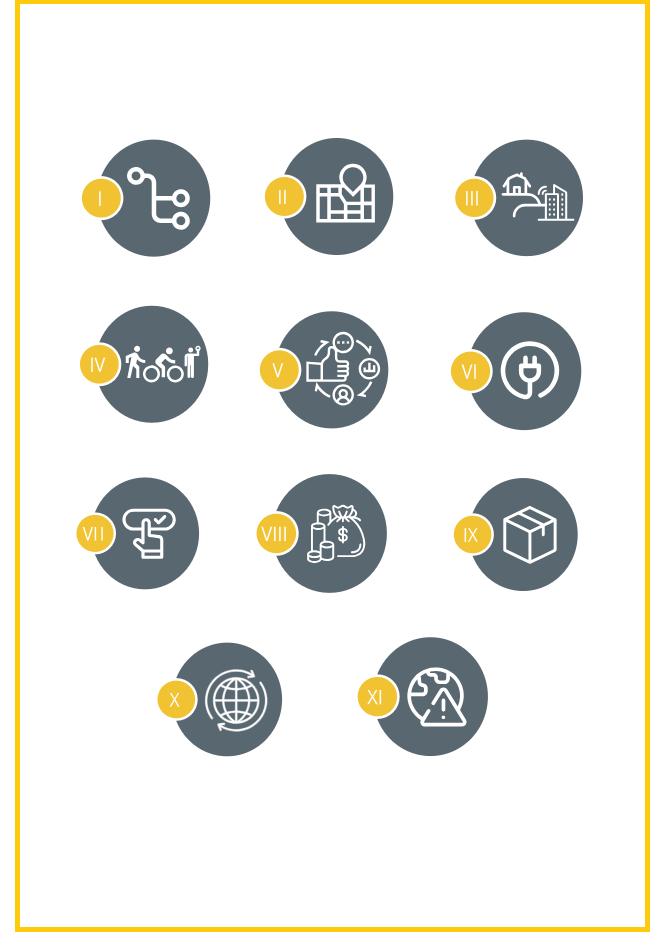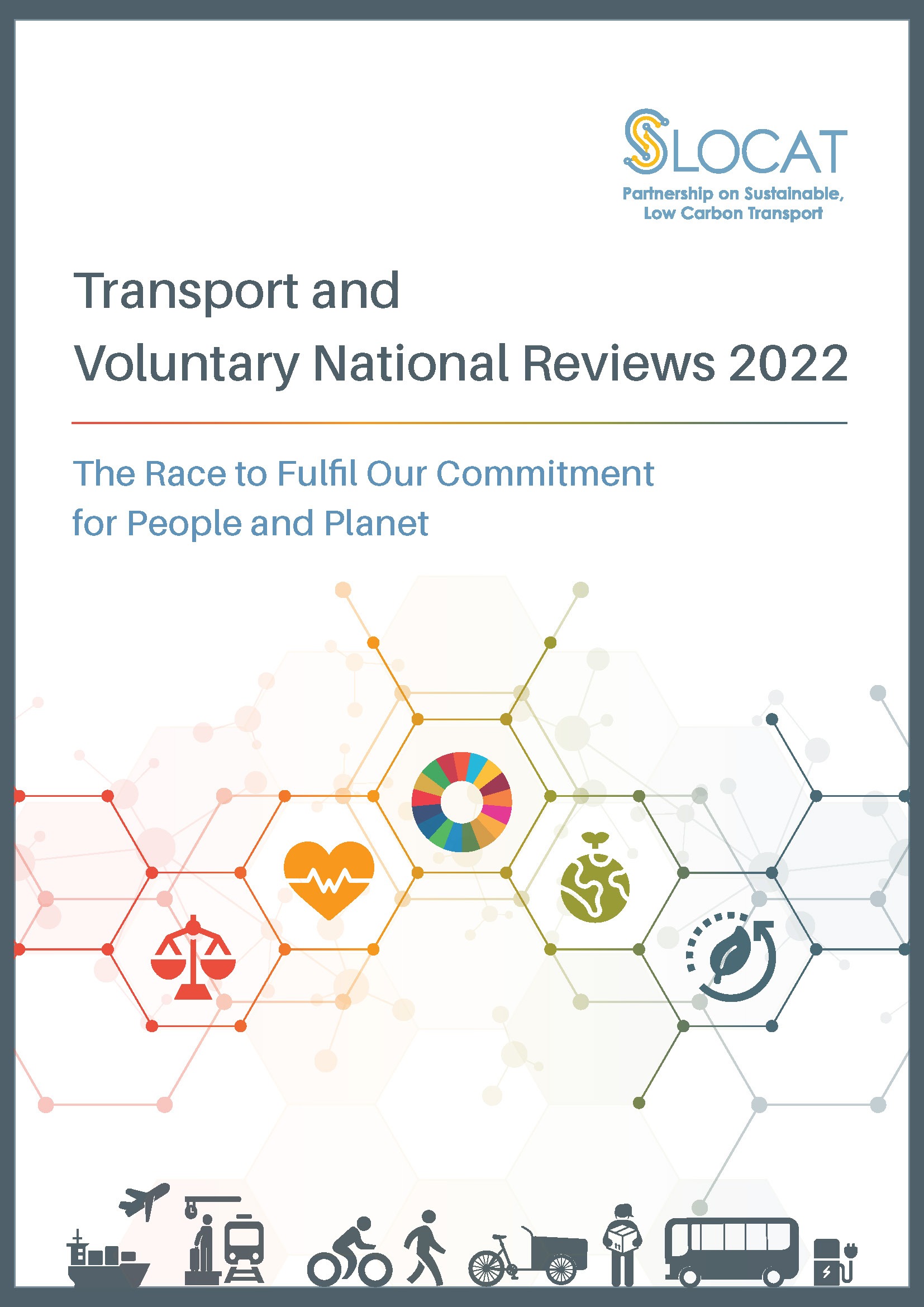Transport Action for Achieving the Sustainable Development Goals
We believe that a just transition to equitable, healthy, green and resilient transport and mobility systems is central to socio-economic prosperity for the people and the planet. To achieve equitable, healthy, green and resilient transport and mobility systems, a series of key transformations in land transport – linked to wider socio-economic transformations, are needed.
The SLOCAT Wheel on Transport and the SDGs defines equitable, healthy, green and resilient transport and mobility systems based on the positive interactions with the UN 2030 Agenda and its Sustainable Development Goals (SDGs).
The analysis is completed with a detailed list of targets across all SDGs for which action on sustainable, low carbon transport and mobility has the strongest impact. The transport-specific indicators used to assess advancement towards some of these targets in the framework of official 2030 Agenda monitoring efforts are also included in this analysis.

